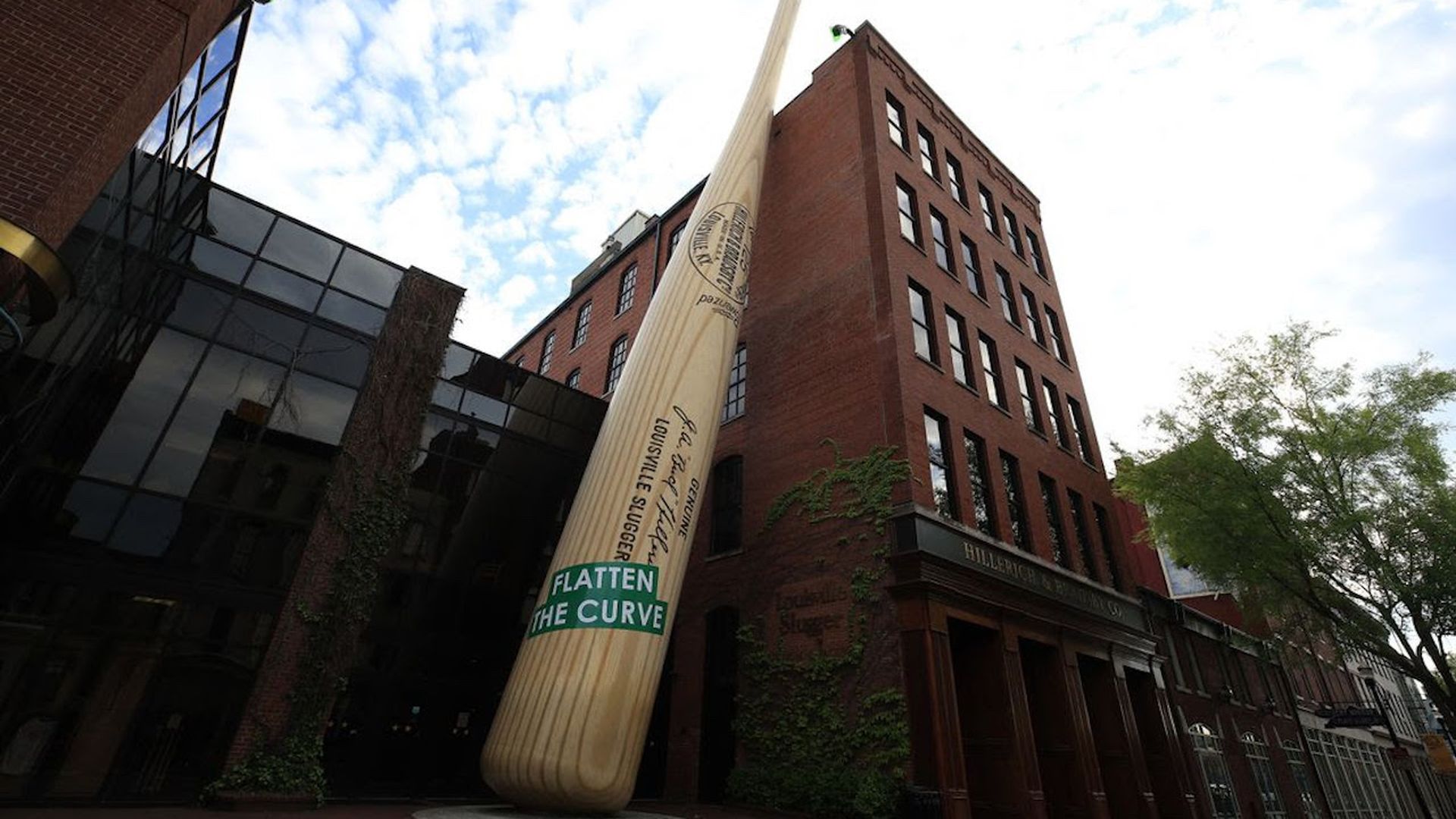Louisville Slugger faces uncertain future after coronavirus closure
Add Axios as your preferred source to
see more of our stories on Google.

Photo: Andy Lyons/Getty Images
The Louisville Slugger factory — the oldest bat manufacturer in the world — has temporarily closed due to COVID-19, with 90% of its staff being furloughed and all remaining employees taking a 25% pay cut.
By the numbers: The factory produces 1.8 million wood bats annually, with pros ordering between 100–120 each season. According to the company, 80% of all batters in the Hall of Fame were under contract with Louisville Slugger.
The origin story: In 1884, 17-year-old Bud Hillerich took a day off work from his father's wood shop to catch a Louisville Eclipse game — the city's major league team.
- Their star player, Pete Browning, broke his bat in anger amid a slump, so Hillerich asked if he could make a new one to whatever specifications Browning wanted.
- In his first game with the new bat, Browning knocked three hits and was hooked for life. Browning's nickname? The Louisville Slugger.
The big picture: For decades, just about everyone used Louisville Sluggers. Ty Cobb, Babe Ruth, Mickey Mantle, Willie Mays, Ted Williams, Hank Aaron, Ken Griffey Jr., Derek Jeter, to name a select and elite few.
- But these days, though some stars still use them, Louisville Sluggers are hardly the only quality choice.
- In fact, Louisville Slugger (13.67%) was just the third-most popular bat brand among MLB starters last season, behind Marucci (23.83%) and Victus (18.36%).
The state of play: New contenders often enter an established space to shake things up, and Marucci Sports — which owns both the Marucci and Victus brands — is no different.
- In 2017, Marucci recognized Victus as a challenger and acquired the upstart brand. Then yesterday, it was announced that Marucci has been acquired for $200 million by a private equity firm.
The bottom line: Louisville Slugger is still the official bat of Major League Baseball, but unlike all uniforms being made by Nike, or all balls being made by Rawlings (which, by the way, MLB owns), players can choose their bat-maker.
- In the past, that competition played right into Louisville Slugger's hands. But they no longer stand alone at the top of the bat-making industry, and the 135-year-old company now faces its biggest challenge yet.
Go deeper: Baseball's uncertain future
